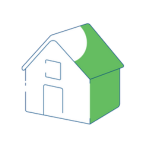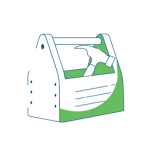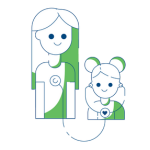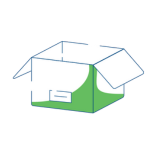Moving to Belgium: what administrative steps?

What formalities need to be completed before moving to Belgium?
Before setting down your bags in Belgium, prepare the ground for a smooth transition. Start by sorting out the following formalities:
Applying for a visa or residence permit
These documents are required for you to reside legally in the country. The types of visas and residence permits that you need for Belgium may change depending on the reason for your arrival (work, study, family reunification, etc.).
People from non-EU countries often need to have a visa or residence permit before arriving in Belgium.
NB: processing times can vary and are sometimes quite long. You will usually need to submit an application to the Belgian embassy or consulate in your home country. In most cases, they will ask for the following documents:
- a valid passport
- proof of sufficient financial resources to provide for yourself during your stay in Belgium
- an accommodation certificate
- health insurance
- other document specific to your situation
Once you have submitted your application, arm yourself with patience. It will be reviewed by the relevant authorities. In Belgium, the Immigration Office is the body responsible for issuing residence permits (short stay and long stay) and visas.
If your application is accepted, you will receive a visa or residence permit to enter legally and live in Belgium. This document will allow you to stay in the country for a given period of time.
Citizens of the European Union can travel to Belgium without a visa. However, they must register with the population service of the municipal authority of their place of residence. Find out more below.
Your accommodation
You are advised to find accommodation before arriving in Belgium, as it will facilitate your subsequent administrative formalities, such as registration with the municipality.
To find accommodation beforehand, browse estate agent websites, such as immoweb.be or immovlan.be. There are also fora (expat.com) and Facebook groups (Expats in Belgium) where newcomers and expats share their advice.
If you are in financial difficulty, the public centre for social welfare, the CPAS/OCMW, of the municipality where you will live will probably be able to help you with your accommodation.
Your job opportunities
If you are looking for work in Belgium, start exploring opportunities before you arrive. This will make it easier to get a foothold in the labour market once you are here. Finding a job from your home country will also influence your future place of residence and choice of school for your children.
Search: via LinkedIn or job search sites such as indeed.be, jobat.be or stepstone.be.
In Belgium, each region offers advice to job seekers, vocational training and even language courses! Here are the services to contact:
Wallonia: Forem – Brussels: Actiris – Flanders: VDAB
Your health insurance
To ensure that the whole family is well covered in case of any problem, take the time to get acquainted with the workings of the Belgian health system. You will see that it is fairly comprehensive! This will allow you to decide whether to close or continue policies in your home country.
Brussels and Flanders: Christelijke mutualiteit - Wallonia: Mutualité neutre
That sums up our advice to you before you arrive. But what are the administrative formalities you face once the family actually moves to our beautiful country.
And after moving to Belgium?
Your registration with the municipality
EU citizens have three months after their arrival in Belgium to register with the population service of their place of residence. For this formality, go to the town hall of the municipality where you live. This registration will allow you to obtain a national identification number and take advantage of various public services.
Remember to take along the following documents:
- ID
- Proof of residence:
This means proof of your address in Belgium. For example: a lease agreement, an accommodation certificate or a utility bill in your name. - Proof of marital status:
If you are married, you will be asked for proof of your marital status, such as a marriage certificate. - Other documents such as your birth certificate or a certificate of work or income.
Looking for a job or declaring work
EU citizens are free to work in Belgium without a work permit. However, you must declare your work to the relevant authorities.
If you are self-employed or an entrepreneur, you must register with the Crossroads Bank for Enterprises (CBE) as a natural person or register your company as a legal entity. You also need to register with the social insurance fund and pay social contributions.
If your business is subject to VAT (Value-Added Tax), you will need to register with the Federal Public Service Finance to obtain a VAT number and submit regular VAT returns. You can contact a corporate registration service to carry out these administrative formalities.
If you are an employee, your employer should take care of the declarations related to your employment with the tax and social authorities.
Receiving financial assistance: child benefit
All children living in the European Union are entitled to child benefit in Belgium if one of their parents works there or if they live in the territory. To receive this allowance, simply fill out the form issued by a Child Benefit Fund, KidsLife, for example.
Registering with the municipality
Nationals of a country outside the European Union have 8 days following their arrival in Belgium to register with the municipality where they live. This is step number 1 and is mandatory to obtain your residence permit and Social Security number (= national register number).
Applying for a work and/or residence permit
To work and live legally in Belgium, you need to obtain a work permit and/or a residence permit. The formalities vary according to the type of professional activity and the length of stay. Feel free to talk about it during your interview at the town hall.
If you carry out a professional activity in Belgium, you will have to follow the same declaration formalities as European nationals (see point about EU citizens).
Receiving child benefit
Any child who lives in Belgium or who has a parent who works in Belgium is entitled to financial assistance. Simply fill out our online form.
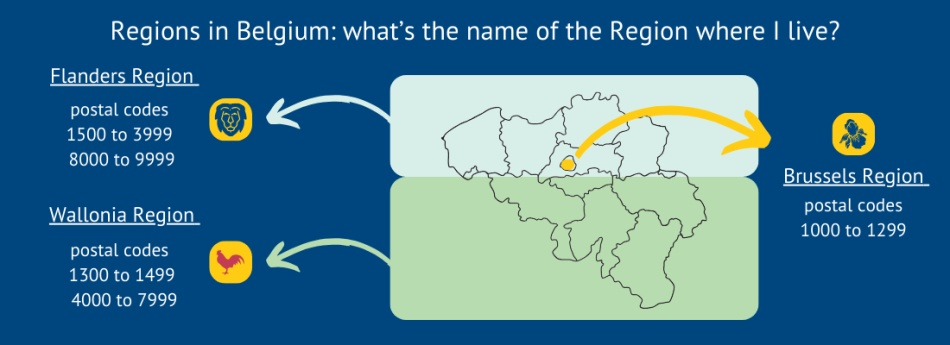
Good to know: Belgium’s specific structure
1 country and 3 regions
Belgium is a federal country, made up of three regions: Flanders, Wallonia and the Brussels-Capital Region. Each region has its own government and specific powers. For example, school system or child benefit regulations are different depending on the region in which you live.
New arrivals and their files are processed by the federal government and the procedure is identical throughout Belgium.

Child benefit in Belgium
Child benefit is managed by Child Benefit Funds, such as KidsLife. This State support is paid to the parents each month. This ensures that they have enough financial resources for their children’s education and welfare.
The amounts received are not the same, depending on your place of residence, the number of children and also the family’s income.
Fortunately, KidsLife is present throughout Belgium and can pay out your child benefit, regardless of the region in which you live.
Apply quickly online! What do you need?
- Your family’s national register numbers. If you do not have them (yet), we ask for your name and date of birth.
- Bank account number for your child benefit payments
- If you have already received child benefit abroad, provide us with the name and address of the body that paid you. If relevant, and in order to save time, also send us proof that this organisation has stopped paying you!
The school system in Belgium
In Belgium, school attendance is compulsory from the age of 5 years. Parents must enrol their children in a school recognised by the education authorities. The Belgian education system offers several options, including public, private and subsidised education.
When enrolling at the school, you will be required to provide certain documents. Generally, the child’s birth certificate and your own residence permit.
Our tips for speeding up the paperwork
A little discouraged? It will all work out fine! Here are some tips to help you keep on top of things:
- Be organised: Have all your important documents handy and ready to be presented as soon as needed.
- Communicate as best you can: Do not be shy! Feel free to ask questions and seek help from local authorities.
- Use online services to get your administrative formalities done faster and easier, without wasting time or energy.
- Put everything into perspective and persevere: some administrative formalities may take a long time. This is only natural because they call for cooperation between different administrations in two countries.
Optimism and determination are all you need for your move to Belgium to go according to plan. Welcome to our beautiful country!

